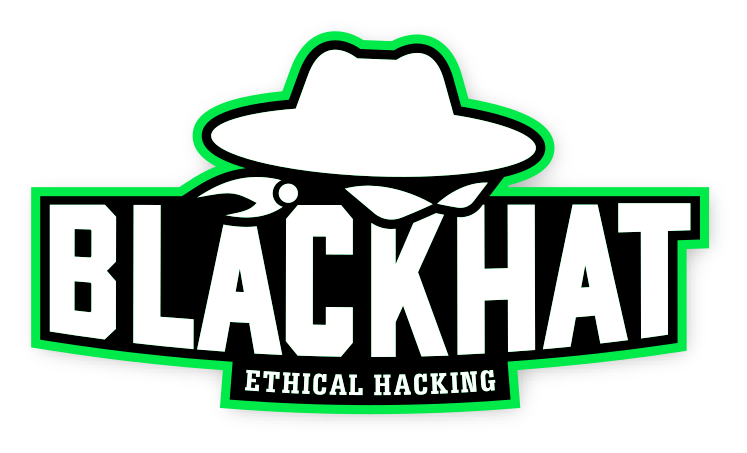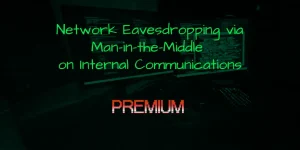How to Start a Career in Cybersecurity (Offensive Security Edition)

Reading Time: 3 Minutes
Introduction
Cybersecurity is vast, but offensive security (thinking like an attacker to secure systems) is one of its most challenging and rewarding paths. It demands technical depth, creativity, and persistence. Whether your end goal is penetration testing, red teaming, or vulnerability research, the path to getting there requires strategic skill-building and real-world proof that you can deliver results.
This guide outlines the clearest, most actionable way to break in, build credibility, and position yourself for a long-term career in offensive security.
Master the Fundamentals That Hackers Exploit
Before diving into exploits and payloads, you need to understand the systems you’ll be targeting.
- Networking: TCP/IP, DNS, VLANs, routing protocols, firewall configurations.
- Operating Systems: Administration of both Windows and Linux. Learn how each handles permissions, processes, and file systems.
- Programming/Scripting: Python for automation, Bash for Linux, and PowerShell for Windows exploitation and post-exploitation scripts.
- Security Concepts: Encryption, authentication, privilege escalation, and common misconfigurations.
Without these basics, your hacking skills will be shallow. Offensive security is most effective when you can think like a systems engineer and then break like a hacker.
Get Hands-On from Day One
Reading theory isn’t enough—you need to break and fix systems in realistic environments.
- Build a home lab using virtual machines or cloud services to run vulnerable systems.
- Use platforms like Hack The Box or TryHackMe for structured, hands-on challenges.
- Tackle exercises that force you to chain multiple vulnerabilities together (why? real-world attacks rarely rely on a single flaw)
Black Hat Ethical Hacking–style training emphasizes this principle: controlled, high-pressure environments that mirror the real adversarial landscape.
Target Certifications That Test Skill, Not Memorization
Some of the most important cybersecurity certifications are in offensive security. And they should prove your ability to solve problems under pressure.
- OSCP (Offensive Security Certified Professional): The gold standard for entry into penetration testing. Requires compromising multiple machines within a set time limit.
- eJPT (eLearnSecurity Junior Penetration Tester): A more accessible first step into practical pentesting certs.
- CEH (Certified Ethical Hacker): A good foundational credential, though less hands-on, useful for meeting certain employer requirements.
Aim for certifications that require active exploitation and reporting. They carry far more weight in offensive security hiring.
See Also: So you want to be a hacker?
Offensive Security and Ethical Hacking Course
Immerse Yourself in Capture the Flag (CTF) Culture
CTFs replicate the mental challenges of real-world hacking in a competitive setting. They sharpen your skills in areas like:
- Web application exploitation
- Reverse engineering and binary analysis
- Network sniffing and manipulation
- Cryptography and steganography
Keep records of your CTF solutions. Publish write-ups to demonstrate both technical skill and communication ability—two qualities employers look for.
Learn to Think and Communicate Like a Professional Attacker
In offensive security, the technical work is only half the job. The other half is communicating your findings in a way that drives change.
- Documentation: Write clear, actionable reports that explain the risk and recommend fixes.
- Collaboration: Red teaming often involves working with other specialists to chain complex attacks.
- Client Interaction: In consulting or testing roles, you’ll need to present your findings to technical and non-technical audiences.
Professionals who can exploit systems and explain the impact are far more valuable.
Build a Public Proof-of-Work Portfolio
Recruiters and security managers want evidence that you can deliver.
Your portfolio can include:
- Detailed write-ups of vulnerabilities you’ve found in labs or bug bounty programs.
- GitHub repositories with custom scripts or tools you’ve developed.
- Blog posts breaking down complex exploits in a way others can understand.
A well-maintained public body of work signals commitment and skill far better than a CV alone.
Plan Your Progression and Keep Adapting
Offensive security is constantly evolving. The tools and techniques you learn today will change, but the underlying principles—creativity, persistence, and adaptability—remain the same.
Start broad, then specialize:
- Beginner Phase: Networking, OS basics, scripting, small labs, and beginner CTFs.
- Intermediate Phase: Practical certs, live penetration testing labs, medium-difficulty CTFs.
- Advanced Phase: Specialization in areas like exploit development, adversary simulation, or cloud security testing.
Revisit your goals every few months. Adjust your path based on what excites you most and where the demand is growing.
Six-Month Offensive Security Launch Plan
| Timeframe | Focus | Goals |
| Weeks 1–8 | Core IT & security fundamentals | Build a home lab, learn Linux and Windows administration, start Python/Bash scripting |
| Weeks 9–16 | Intro to offensive security | Practice on Hack The Box or TryHackMe, learn common vulnerabilities (SQLi, XSS, LFI/RFI, privilege escalation) |
| Weeks 17–20 | Beginner CTFs | Complete and document at least 3 CTF challenges, publish write-ups |
| Weeks 21–24 | Certification | Earn eJPT or Security+, start preparing for OSCP |
| Ongoing | Networking & visibility | Publish lab work, attend security meetups or conferences, apply for internships or junior pentesting roles |
Bottom Line
If you want to succeed in offensive security, you must build deep fundamentals, train in hands-on environments, prove yourself through practical certifications, and showcase your skills publicly. The industry rewards people who can adapt quickly, think like an attacker, and deliver results that make systems safer. The earlier you start combining technical skill with visible proof of your work, the faster you’ll stand out in a competitive field.
This article is written by David Matthews.
Are u a security researcher? Or a company that writes articles about Cyber Security, Offensive Security (related to Information Security in general) that match with our specific audience and is worth sharing? If you want to express your idea in an article contact us here for a quote: [email protected]


















